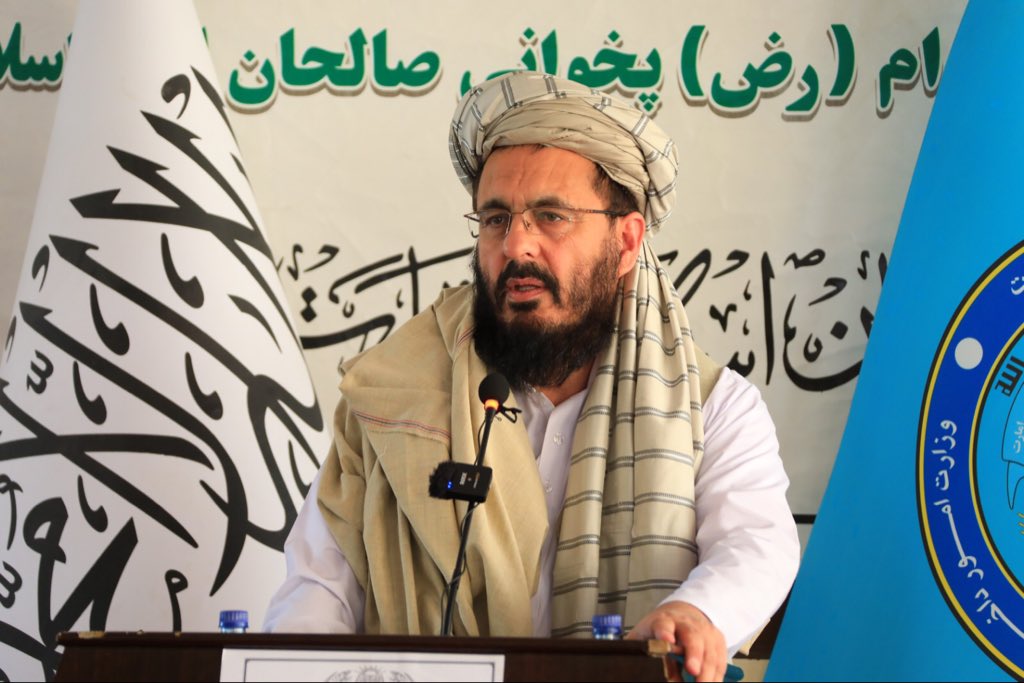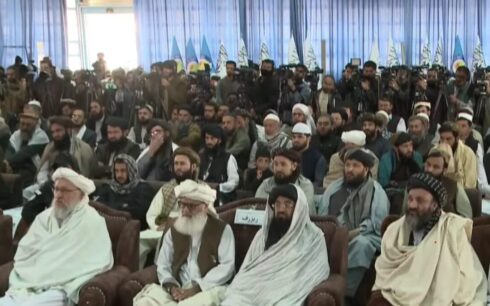Mohammad Nabi Omari, the Taliban’s deputy interior minister, ridiculed the International Criminal Court prosecutor’s recent request for arrest warrants targeting the Taliban’s leader, Hibatullah Akhundzada, and their chief justice Abdul Hakim Haqqani. Omari called the demand “unsuccessful” and urged the ICC to abandon the effort.
Speaking at a graduation ceremony for a jihadi madrassa in Khost, Omari defended the Taliban’s authority and rejected foreign intervention. “Afghans strive to achieve their goals based on their own principles and values, and international forces must accept this reality,” he said, according to the state-run Bakhtar News Agency.
The ICC prosecutor’s request has drawn strong support from human rights advocates, who have hailed it as a pivotal moment in addressing alleged crimes committed by the Taliban.
United Nations human rights experts on Friday welcomed the ICC’s application for the arrest warrants, describing it as a “historic moment” in the global pursuit of justice.
“This is a critical step forward in the pursuit of justice for crimes against humanity committed against Afghans,” the experts said in a joint statement. “It sends an important signal to the Taliban that its leadership may face arrest and trial for international crimes, including gender persecution.”
The statement was issued by Richard Bennett, the U.N. special rapporteur on the situation of human rights in Afghanistan, and members of the U.N. Working Group on discrimination against women and girls. They underscored the significance of the move for Afghan women, girls, and LGBTQI+ individuals, who have faced severe repression under the Taliban’s rule.
The ICC’s request focuses on alleged crimes against humanity, including systematic gender-based persecution, that have been reported since the Taliban’s return to power in 2021. Human rights groups have repeatedly condemned the Taliban for policies that have effectively erased women and girls from public life, banning them from education, employment, and most forms of civic participation.
While the ICC’s request for arrest warrants is unlikely to lead to immediate legal consequences for Akhundzada and Haqqani, analysts say it signals growing international pressure on the Taliban. Advocates argue that such measures are essential for holding the group accountable and supporting victims of rights violations.
Taliban have condemned the move by the ICC prosecutor.





